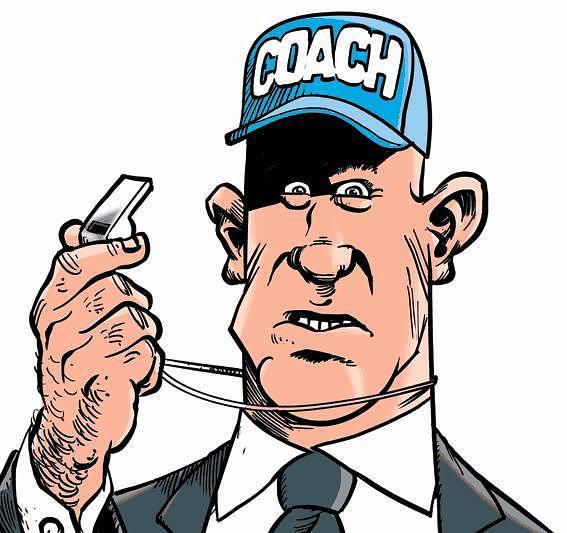As coaches, we often try to implement perfect training sessions, and become very disheartened when it all doesn’t go to plan. Unfortunately there is no “gold standard” or magic formula, in terms of coaching practice – although Brian Cody, Alex Ferguson and Bill Belicheck aren’t too far off the mark! Modern day coaching is constantly evolving, and each year we are exposed to new concepts and ideas which are expected to revolutionise our training methods? Nonetheless if we follow some basic principles our coaching could significantly improve - the following tips are most applicable when coaching children and youths.
TIP 1 - INCLUSIVENESS
“100% of the children, 100% of the time,” summarises everything we need to understand when coaching children. Coaches should always endeavour to maximise participation; whereby everybody is catered for regardless of culture/ethnicity, religion, gender, and/or disability. Becoming aware of individual differences is also advised - one size does not fit all in coaching circles. For example, it would be foolish to assume that two players with identical physical and cognitive attributes will follow similar developmental pathways. We must always be mindful that beginners, developers and skilled players are all treated equally. This encourages children to remain active within their chosen sport(s), and thus reduces the likelihood of dropout.
TIP 2 – SESSION PLANNING
According to GAA Coach Education, there are over 150 skills in each code of Gaelic games. Although some skills are not applicable to young players, a vast range of skills remain for coaches to develop. It’s not feasible to practice every single skill in one training session; instead it is advisable to select 2-3 primary skills. This enables coaches to spend more time on selected skills; as opposed to spending less time on too many skills – whereby the quality of coaching often suffers. Training sessions should have a clear objective i.e. “this evening we are going to focus on the punt kick and body catch/striking from the hand and claw catch.” Coaches that plan ahead, and organise sessions to match the demands of the game are well suited to coach children.
TIP 3 – DEMO > EXPLAIN
Through hands-on experience (practical) and attending courses (theory), coaches can build up a huge bank of knowledge over time. Coaches that are passionate about Gaelic games may often wish to share this information with other coaches, as well as their players. However caution is advised - don’t be a coach who loves the sound of his/her own voice i.e. a preacher! This dilemma becomes very apparent during skill development, as 95% of Irish children are visual learners. Are we catering for the needs of our players by speaking at length? A simply analogy of “show, don’t tell” can be applied; whereby coaches choose to demonstrate a technical skill or gameplay scenario, instead of explaining how to do so. It’s also important to realise that younger players have a very short attention span (20-30 seconds), therefore a correct demonstration from numerous viewpoints is quicker to execute, and is far more beneficial for a child’s learning.
TIP 4 – COMMUNICTION
For many years, coaches tried to hold an authority over players and their parents; and an attitude of “I’m the boss, I know best, and don’t cross me unless you want Jimmy/Mary to sit on the bench all year,” existed in the GAA club. Thankfully this behaviour is slowing dying in our games. The “athletic triangle” (player, coach and parent relationship) is a key parameter for children’s progression through youth sport. Coaches should always make themselves approachable, which allows players and parents to express their views, and feel respected by a listening coach. Coaches that choose to dismiss opinions and are unwilling to compromise (try out new ideas) may prove hugely detrimental to a child’s development. Equal channels of communication are essential for effective coaching practice.
TIP 5 – TELL, SHOW, INVOLVE
“Tell me and I forget, show me and I may remember, involve me and I learn,” Benjamin Franklin.
It’s fair to say that we all want what’s best for our players, but at times this leads to coaches telling and showing players exactly what to do. Patience is a virtue – and it couldn’t be more applicable when coaching children. Every time we make a decision for a child, we delay the learning process. Children that are allowed to make their own decisions develop autonomy, resilience and improved psychological focus – easily achieved when coaches choose to observe, rather than instruct or demonstrate solutions. As a result players are involved in their own developmental pathway, and the learning process is accelerated. Positive learning environments enable players to feel safe and express themselves. Therefore players are afforded the opportunity to make lots of mistakes and take risks; thus developing problem solving skills, and leading them towards skill mastery.
TIP 6 – LET THEM PLAY FOR FUN
The coaching of Gaelic games for children should always be player centred i.e. focus on playing the child’s game, without interference from the adult (competitive) world. Fun is absolutely paramount – remember they are just children so let them play. Fun training sessions are always memorable for players, coaches and parents alike. Pay close attention to the body language of children; big smiles and laughing are an obvious indicator of enjoyable sessions. Coaches often use popular school yard games as part of the warm-up or throughout the session, which can be particularly useful to settle nerves for beginners within the group. Allowing time for free play is also recommended as it promotes social interaction and team bonding – which is important for children who may attend different schools.
FINAL THOUGHT
Coaching is a lifelong journey, mainly lead by volunteers who were “bitten by the coaching bug,” and quite simply love coaching. All good coaches become role models for young children as they have their best interests at heart. They are passionate and enthusiastic about Gaelic games, and wish to instil correct values and create self-belief. If coaches could pair their grá of coaching with some of the aforementioned tips … their capacity to coach would improve leaps and bounds!







